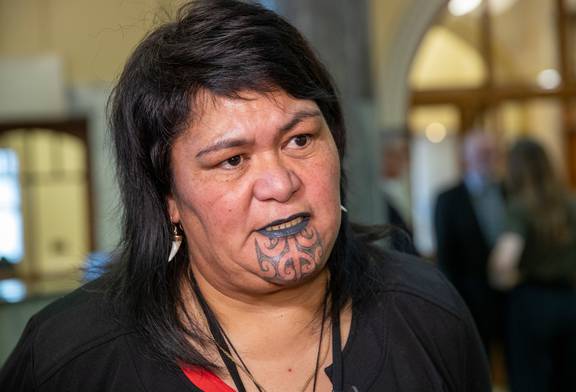New Zealand Foreign Minister Nanaia Mahuta says Pacific leaders may need to meet as Solomon Islands prepares to ink China security deal
Foreign Minister Nanaia Mahuta says Pacific leaders want “greater clarity” from the Solomon Islands about their contentious China security deal, and may need to bring forward a crucial regional meeting.
Mahuta last week travelled to Fiji to sign a high-level partnership agreement, “uniting like never before” according to Fiji’s prime minister, to partner on economic, security, climate change and humanitarian aid issues.
But the new agreement came as another caused anxiety for New Zealand and other Pacific nations. The Solomon Islands on Friday readied to finalise a sweeping security agreement with China, with senior officials of the two countries “initialling” the document in preparation of a formal signing.
“It’s my view that several of the Pacific nations will want greater clarity from the Solomons around the nature of those agreements, and the extent to which the sovereign interests of Solomons may well impact on the regional sovereignty and security interests of the Pacific,” Mahuta said on Friday, in an interview.
Mahuta said the leaders of the 18 countries that make up the Pacific Islands Forum (PIF), which includes New Zealand and Solomon Islands, were due to meet in June. But such a meeting may need to occur earlier in response to the Solomon Islands security deal.
“Depending on conversations across Pacific nations in relation to the draft arrangements that have been circulated and the level of concern that they have, it may well be that the PIF bring forward a meeting, or convene a meeting to discuss these issues,” Mahuta said.
“We see merit in trying to ensure that a conversation in relation to regional security and regional sovereignty take place sooner rather than later and the Pacific Island Forum is the best forum to actually facilitate that discussion.”
Fiji has discussed the security arrangement with Solomon Islands. The country’s prime minister, Manasseh Sogavare, said he had discussed the matter with Fijian Prime Minister Frank Bainimarama.
Australian media have reported that Prime Minister Scott Morrison had sought Bainimarama’s support in dissuading Solomon Islands from the deal.
The president of the Federated States of Micronesia, David Panuelo, also wrote to Sogavare last week to share his “grave security concerns” about the arrangement due to fear the Pacific Islands “would be at the epicentre of a future confrontation between these major powers”.
Mahuta said she would not go “too deeply into bilateral discussions” she had with Bainimarama.
“I was very clear about when New Zealand sat on the draft set of arrangements and our concern that while Solomons have the ability to exercise their sovereignty, it appeared that those draft set of agreements could lead to stronger security arrangements between Solomons and China, and it may, in fact, have a reverberative impact across the Pacific and regional security interests.”
Mahuta said New Zealand’s new agreement with Fiji, called the “Duavata Partnership”, set out “strategic partnerships that will be important going forward”.
New Zealand’s relationship with Fiji has been troubled in previous decades. The Government in 2006 was condemned after military coups in the country, one led by Bainimarama, but relations improved from 2014 as New Zealand lifted sanctions due to Fiji holding elections.
“Certainly the signing of the agreement signals that we want to move forward, and that there’s a real appetite and desire between the Fijian and New Zealand governments to do that,” Mahuta said.
“There are issues in relation to ongoing humanitarian aid and disaster relief, where know we can work better together … And then the socio-economic consequences of Covid, climate change, strategic security issues in the region.”
Bainimarama, in a post on social media, said that Fiji and New Zealand were “united like never before through our new Duavata Partnership – an agreement that recognises the urgency of meeting the climate emergency and the need for a sweeping recovery across a secure Blue Pacific”.
Among provisions, the agreement promises an “expanded development programme” to build economic resilience, to strengthen Fiji’s disaster response, and to support “capability to uphold sovereign authority over our land and maritime territories”, and expand cooperation in policing, cyber-security and intelligence.
“Cyber-security is a really new area, so the more we can strategically cooperate on cyber issues, then, I guess the more resilient what we do across the Pacific can become,” Mahuta said.
“For example, trade, the backroom functions to trade require a whole lot of IT platforms, working and talking together, and there are intelligence-based activities as well. So it’s a strong signal that we want to work together with Fiji on a number of fronts,” she said.
SOURCE: STUFF NZ/PACNEWS














